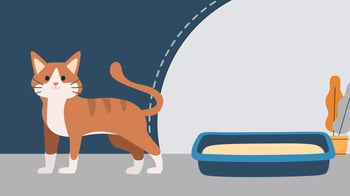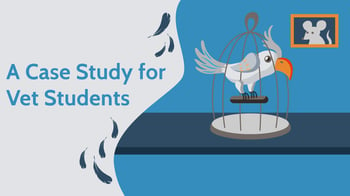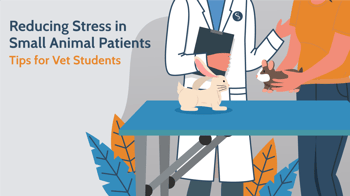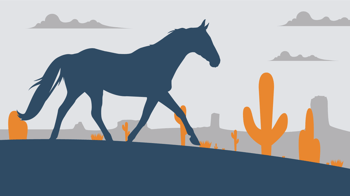Bailey, a 4 year old male neutered Domestic Shorthair, is presented for inappropriate urination. Bailey lives with three other cats. They share two litter boxes, which are scooped daily and cleaned weekly.
This has always worked well, but Bailey’s owner recently began noticing small puddles of urine on the rug in the upstairs guest bathroom. After a week of careful observation, the owner has determined that Bailey is the culprit.





